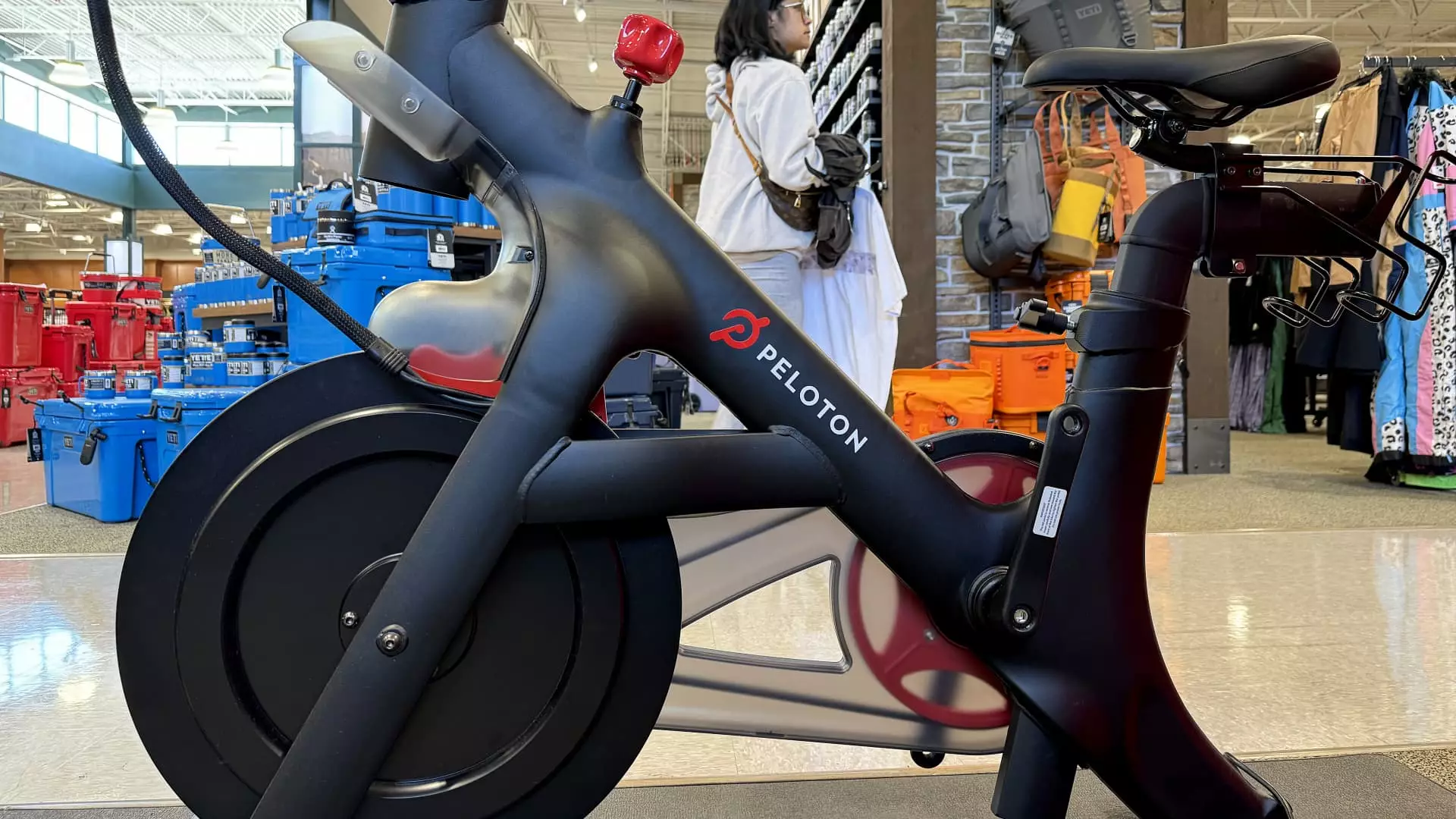Peloton has dismantled its previous image of exclusive luxury fitness brand with the launch of Repowered, its innovative marketplace for reselling used equipment and gear. This leap toward monetization of the secondhand market is not merely a tactical decision; it signifies a profound understanding of contemporary consumer behavior and the fitness landscape. As someone passionate about the intersection between fitness, technology, and market trends, I find myself both intrigued and critical about how Peloton is navigating these waters.
Opportunistic Strides in a Stagnating Market
The world has seen fitness-related startups skyrocket and similar companies falter, particularly as pandemic-driven trends began to recalibrate. Peloton’s move to launch Repowered appears to be a strategic response, aimed at revitalizing a user base that has been slowly drifting away, often leaving their bikes and treadmills to collect dust. It’s no secret that many have given up on their expensive purchases; Peloton machines have been likened to glorified clothing racks. The company is smartly looking to harness this stockpile of unused equipment, carefully re-engaging disengaged users by offering a way to resell and reinvest in their fitness journey.
In the ever-competitive arena of fitness technology, standing still could spell disaster. By leveraging the rapidly growing resale market, Peloton not only capitalizes on its existing equipment but also taps new customers who may otherwise shy away from a brand new purchase. This marketplace approach promotes sustainability—a double win that aligns with progressive consumer values.
Empowered Sellers with AI Guidance
One of the standout features of Repowered is its generative AI tool designed to assist sellers in pricing their used gear. By providing an estimated market value based on factors like age and condition, Peloton shifts some pressure off the sellers, letting them list their equipment with confidence. While sellers ultimately decide on the price, the AI offers invaluable insights. Many users will appreciate the simplified yet, guided approach to pricing, making the process less intimidating.
However, one must wonder: does this AI also inadvertently de-humanize already personal transactions? The reliance on algorithms could obscure the human element of negotiation that often characterizes secondhand sales. What about the ability to share a story attached to the equipment? I believe while AI can enhance efficiency, it should not detract from meaningful interactions.
A Win-Win Proposition
The premise behind Repowered is tantalizingly appealing for both sellers and buyers. Sellers are entitled to 70% of the sales price while receiving a discount toward a new purchase. On the other hand, buyers will find the activation fee for used products significantly reduced. This financial structure presents a phenomenal opportunity for both parties, likely leading to a thriving ecosystem of trade within the Peloton community.
Yet, how does this business model align with Peloton’s broader strategy? By diversifying its revenue streams—potentially reducing reliance on expensive subscriptions—Repowered allows Peloton to stabilize its long-term growth. If executed correctly, they could dominate this niche market while simultaneously creating a loyal customer base eager for updates and upgrades.
Turning Competition into Opportunity
With Repowered set to compete against platforms like Facebook Marketplace and startups such as Trade My Stuff, Peloton’s entry signifies its ambition to reclaim lost ground. While the initial launch is limited to cities like New York, Boston, and Washington, D.C., the potential for a nationwide rollout hints at plans for rapid scaling. The fact that they are carving out their own marketplace places them uniquely against established competitors.
Peloton’s proactive approach raises the question: How will competitors adapt? As users migrate to a more trustworthy platform designed specifically for Peloton equipment, the competitive landscape may become increasingly fragile for businesses that lack similar adaptive strategies.
In an era where consumer loyalty hinges on experiences more than products, Peloton’s Repowered endeavor could be the A-list audition it desperately needs to redefine its brand. While skepticism can cloud optimism, it remains crucial to observe how this initiative unfolds. For now, the prospects of Revamped are promising, if not thrilling.


Leave a Reply